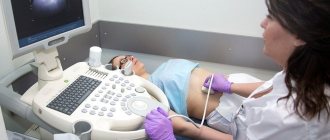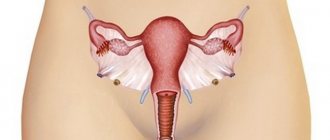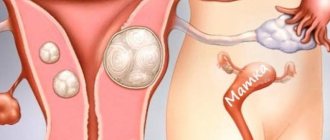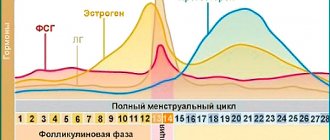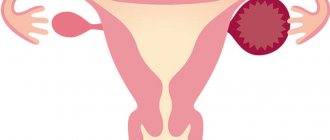An ovarian cyst is a tumor that is a sac of fluid. This pouch can form due to hormonal imbalances in the girl’s body. There is no warning for this disease. It is very important to identify a cyst in a timely manner and monitor its size. You must also follow all recommendations and instructions. Many people have a question about what contraindications there are for ovarian cysts. For ovarian cysts, contraindications may vary.
Exercising with a benign ovarian tumor
Many girls and women who lead an active lifestyle ask specialists questions about whether they are allowed to play sports if they have an ovarian cyst. It should be said right away that performing most physical exercises with such a diagnosis is unacceptable. Especially if they require the use of strength and endurance. Such loads include:
- Long distance running.
- Abdominal exercises.
- Cardio training.
- Lifting weights.
Other physical activities that force the abdominal muscles to work are also prohibited.
Separately, it is necessary to discuss the possibility of doing fitness for women who have had a cyst discovered in their ovary. This type of physical activity is not a direct contraindication. However, if a woman experiences discomfort in the lower abdomen or feels pain while performing certain exercises, then she will have to postpone the exercises until she has fully recovered. Fitness is also prohibited for patients with large tumors.
If a woman with an ovarian cyst continues to exercise and does abdominal exercises, she runs the risk of rupturing the tumor. This dangerous phenomenon requires immediate hospitalization. Only surgery will help eliminate the consequences of a ruptured cyst.
We recommend reading - what exercises can be performed with an ovarian cyst.
Intimate life with a neoplasm in the ovary
The main component of a woman’s health is having regular sex life. It provides her with a high level of moral and psychological comfort. This is one of the reasons why patients at an appointment with a gynecologist ask whether they can have sex with a cyst on the right or left ovary.
This topic has been the subject of many studies. Thanks to them, experts were able to understand that the cyst is not an obstacle to leading a normal intimate life. So a woman who has been diagnosed with a benign tumor in the ovary can have sex.
But at the same time she should adhere to a number of rules:
- Until complete recovery, it is worth excluding those poses that cause the abdominal muscles to tense. They will probably be painful. Also, such poses can cause cyst rupture.
- A woman should carefully monitor the sensations she experiences during intimacy with a man. If she is bothered by pain or discomfort, then it is better to temporarily refuse sex.
- If the tumor tends to constantly increase, then sex is contraindicated for the woman. A cyst that is too large may rupture during sexual intercourse. And this cannot be allowed.
In order not to risk their own health once again, women with a neoplasm in the ovary should reduce the number of sexual intercourses. They are also advised to refrain from excessive activity during intimacy.
We recommend reading: is it possible to have sex with an ovarian cyst?
Symptoms of complications
A cyst rupture is an emergency.
You need to see a doctor immediately. Liquid from the capsule enters the abdominal cavity, irritating the walls and organs. Because of this, inflammation develops. Cyst rupture is accompanied by noticeable symptoms: IMPORTANT TO KNOW!
- abdominal cramps;
- sharp pain that spreads to all nearby organs and radiates to the lower back;
- nausea and vomiting;
- after vomiting, the spasms do not go away and it does not get easier;
- the temperature rises.
But cyst rupture is less common than cyst pedicle torsion. It occurs when the cyst rotates around its axis. This happens with fairly large formations that have had time to grow a stem. Complications can be triggered by sudden physical activity or sexual intercourse.
The node consists of tissues located close to the formation. Thus, a paraovarian cyst of the right ovary “twists” the fallopian tubes on the right. Sometimes the ovary also twists, the pain in this case is stronger and there is a higher risk of rupture. Symptoms for complications are similar. Severe pain is the main symptom. Often patients are so ill that it is difficult for them to walk or simply stand up straight.
Paraovarian ovarian cyst during pregnancy requires careful monitoring. Although this type of formation does not interfere with conception, large cysts often cause complications. When the ovaries are displaced due to the growth of the embryo, the cyst can easily twist even from small loads. Childbirth can also provoke rupture or torsion. In addition, large formations can interfere with the functioning of organs purely mechanically, due to their size. If the cyst interferes with the child's growth, it is cut out.
Drinking alcohol with ovarian cysts
It is strictly forbidden to drink alcohol if you have an ovarian cyst. Any alcohol-containing drinks have a detrimental effect on women's health. In addition, they slow down the healing process and cause serious complications.
Alcohol is contraindicated for the reason that it reduces the body's resistance to pathogens. Strong drinks negatively affect hormonal levels, which causes the tumor to grow even more.
- It is allowed to take only small quantities of alcohol tinctures for medicinal purposes.
- But before this, you should definitely consult with a specialist in order to exclude the occurrence of side effects from the use of such drugs.
In addition to alcohol, women with a cystic tumor on the ovary should also avoid carbonated drinks, as they can cause the tumor to enlarge. Strong teas and coffee cause a similar reaction. Avoiding such drinks will speed up the healing process.
Causes of follicular ovarian cysts
The disease has no age. It can occur in girls during puberty and in women of premenopausal age. There is a theory that the main factor influencing the formation of a tumor is the activity of the brain at the subcortical level. Stressful situations or nervous tension causes the activity of the nerve centers responsible for hormonal balance, and its functioning is disrupted.
Additional causes of benign follicular neoplasms that increase hormonal imbalance include:
- The influence of chorionic gonadotropin of the placenta and maternal estrogens, which in female embryos usually resolves upon birth;
- Violation of diet and diet;
- Lack of sleep and inadequate rest;
- Emotional exhaustion of the body;
- Inferior sex life;
- Constant change of partners;
- Sexual infections;
- Gynecological operations of varying complexity;
- Surgical interventions outside the pelvic organs;
- Endocrine diseases;
- Digestive problems;
- Hepatic and renal function disorders;
- Increased physical activity.
Symptoms of follicular ovarian cysts occur during the treatment of infertility, while taking hormonal drugs. This condition appears as a side effect of hyperstimulation of ovulation to speed up conception in preparation for IVF.
Visiting a bathhouse for an ovarian tumor
A woman who is interested in the question of whether she can go to the bathhouse with an ovarian cyst will hear a negative answer. With such a pathology, this procedure is prohibited. The same applies to visits to the sauna.
The fact is that hot steam, like heat itself, causes rapid heating of the body. As a result, blood flow to the abdominal cavity is significantly increased. This phenomenon provokes the growth of a cystic tumor, which ultimately leads to its rupture.
Under no circumstances should you attend spa treatments, do body wraps, or even just warm your lower abdomen. You should avoid putting pressure on this area. Such procedures are contraindicated in all women with an ovarian cyst, regardless of the size of the tumor.
Medical manipulations and therapeutic procedures
If we analyze the most frequently asked questions from patients, we can answer this:
- In case of ovarian pathology, it is possible and necessary to do endoscopic examinations of the digestive tract - irrigoscopy, colonoscopy, fibrogastroduodenoscopy. The formation of appendages can be a metastasis from the abdominal organs, and this can only be determined after a thorough diagnosis. The risk increases after age 40;
- An ovarian cyst is not a contraindication to cauterization of cervical erosion or removal of cervical polyps;
- For ovarian formations, hysteroscopy with diagnostic curettage of the endometrium is performed. This analysis allows you to assess the condition of the uterus and identify concomitant pathologies;
- Physiotherapy is used to accelerate the regression of functional ovarian cysts, as well as after surgery. Electrophoresis with enzyme preparations and vitamins, magnetic therapy, and ultrasound are used. Thermal warming manipulations and darsonval are not recommended. Water procedures are carried out with caution, including radon and mineral baths and ozone therapy.
Any examinations and treatment procedures must be agreed upon with a gynecologist.
When planning any medical procedures, you should definitely discuss with your doctor the possibility of carrying them out if you have an existing ovarian pathology.
On a note
For ovarian cysts, alternative medicine methods are not recommended: acupuncture and hirudotherapy. These procedures increase blood flow in the pelvic organs and can provoke the growth of the lesion.
What other contraindications exist?
The main contraindications that a cystic neoplasm in the ovarian cavity has are listed above. Also, women with this pathology will have to avoid:
- Taking hormones that were not prescribed by a doctor . All such drugs are allowed to be used as treatment only after a preliminary conversation with a qualified gynecologist or endocrinologist. This is because today there are many different hormonal agents, so a person who is not familiar with them does not know what is allowed and what cannot be used to treat cystic tumors of the reproductive system organ.
- Prolonged exposure to direct sunlight . During the summer season, women diagnosed with an ovarian tumor will have to hide from the sun. On the beach they can only be under a wide umbrella. This way they will be able to protect their body from overheating. And, as mentioned earlier, heat provokes rapid growth of the cyst.
- Self-medication . Without special education and practice, a woman will not be able to choose the right treatment for herself. And uncontrolled use of various drugs will only cause complications. You should also be wary of traditional medicine methods, which are not always useful.
- Dragging heavy things . When a woman carries bags full of various things, her body experiences serious stress. This may cause the ovarian cyst to rupture.
It is highly undesirable to ignore the doctor’s warnings, which he must tell every patient with a cystic tumor in the ovary. She herself should first of all be interested in her speedy recovery.
And it will be possible to achieve a positive result in the fight against this pathology only by following all the recommendations and prescriptions of the gynecologist. A woman should temporarily protect herself from dangerous situations that are contraindicated. Only in this case does she have a chance to get rid of the cyst and avoid its re-development in the ovary.
Why does the problem occur?
When they talk about such a phenomenon as paraovarian ovarian cyst, the causes are associated with congenital problems. A bubble with liquid will appear in the area of the ovarian appendages even in the embryo when there is a failure in its development. The pathology is not located inside the ovary, but in the area between the appendage and the uterine tube. Several such cysts may occur. Often cysts grow symmetrically on both sides.
There is no need to be afraid of tumors if a paraovarian ovarian cyst has grown. Large formations bring problems. There is evidence of a cyst the size of a baby's head. Pathology is essentially a bubble with liquid. The more it accumulates, the thinner the walls of the cyst become. The liquid itself is something like a white mixture with additives: mucus, sometimes blood.
A paraovarian cyst on the ovary gradually grows a stalk. This is a kind of fastening through which nutrition is supplied to the tissues of the cyst. It includes ligaments of the ovaries, veins and arteries, and often the leg also includes the fallopian tube. In particularly advanced cases, the intestinal walls are “drawn” into this formation. A paraovular ovarian cyst increases in size during hormonal changes. That is why it is often found in young women. Factors such as:
- endocrine system disorders – lack or too high levels of certain hormones;
- early puberty;
- abortion or pregnancy disorders;
- medications that change the functioning of the ovaries;
- stress and nervous breakdowns;
- advanced infections;
- injuries.
Education may increase due to excessive sunbathing, including solariums. Pathology does not interfere with getting pregnant, because the cyst and egg growth are in no way connected. Therefore, feel free to plan a child if you have a paraovarian ovarian cyst. And pregnancy will be without problems and pathologies. Of course, everything depends on the specific characteristics of education. The choice of treatment depends on the size and location of the cyst. If you are lucky and it is small, then constant medical supervision is sufficient.
